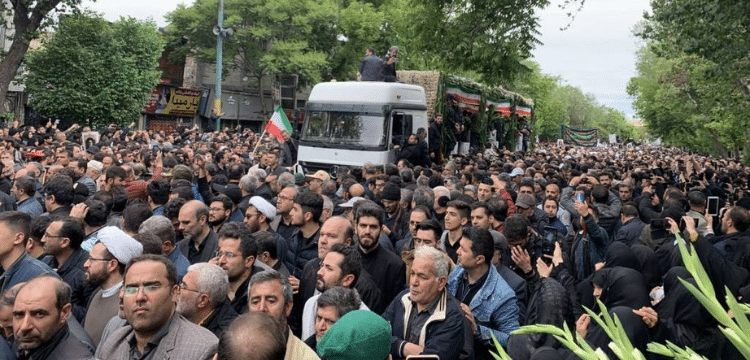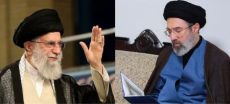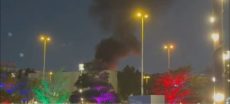[vc_row][vc_column][vc_column_text dp_text_size=”size-4″]Crowds gathered in Tehran on Wednesday for Iranian President Ebrahim Raisi’s funeral, with multiple events planned before his burial in Mashhad, north-eastern Iran.
Supreme Leader Ayatollah Ali Khamenei, who declared five days of national mourning, will lead the funeral prayers at Tehran University, attended by foreign dignitaries and Iran-backed militant group representatives.
Read more: PM Shehbaz To Participate In Funeral For Irans President Raisi
Hamas chief Ismail Haniyeh joined mourners around Raisi’s coffin as state TV broadcast images of large crowds in Tehran, with black and Iranian flags on main roads.
Mourning ceremonies took place in Tabriz and the holy city of Qom on Tuesday, following Raisi’s death in a helicopter crash on Sunday. The crash also killed Foreign Minister Hossein Amirabdollahian and other officials while returning from a dam inauguration on the Azerbaijan border.
State TV showed clerics, generals, and mourners weeping at the university gathering, while Raisi’s supporters prayed and mourned in Enghelab Square and other city locations.
Residents received messages urging them to attend the funeral, AFP reported, and Wednesday was declared a national holiday.
The 63-year-old hardline president, in office since 2021, was expected to succeed the 85-year-old Khamenei.
Large crowds also gathered in Tabriz on Tuesday as the caskets moved through streets lined with portraits of Raisi and colleagues. The remains were then transferred to Tehran’s Mehrabad International Airport and later to Qom.
Ceremonies will continue in Birjand on Thursday before Raisi’s burial at the Imam Ali Reza shrine in Mashhad. Amirabdollahian will be buried at the Shah Abdol Azim shrine in Rey, Tehran province.
Raisi’s tenure saw tumultuous times, including protests following Mahsa Amini’s death in 2022, escalated nuclear activities, and controversy over weapons sales to Russia.
Khamenei led tributes, while public mourning was subdued due to Raisi’s role in political prisoner executions and regime oppression.
Maj Gen Qassem Suleimani’s family said Raisi “lived as a martyr” and met a good end, while predecessor Hassan Rouhani called it a “bitter page turned in the book of the Islamic Revolution.”[/vc_column_text][/vc_column][/vc_row]











